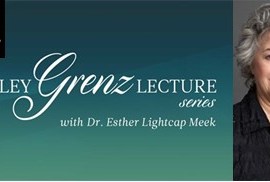
Is pluralism is a disruption to community? When each person does what is right in their own eyes, (is this even a useful way of thinking about pluralism?) then someone will get hurt. Which of course means that one person’s freewill was “freer” than the now wounded person’s.
As followers of the Way of Jesus we would say that to hurt another is to hurt self. So when I wound you I am also wounding myself and all humanity. That is one of the distinctions of the Christian understanding of community in contrast with individualism.
The question of when or if, to “take a stand” is a huge one. Of course we can try to answer this question individually and/or communally. On a communal level our Christian heritage has one dominant school of thought for most of Christian history… just war tradition. From Augustine & Aquinas, to Calvin & Luther the variations of just war was acceptable. It seems there has almost always been a subset of Christ for whom violence was not an option. Maybe most notably during the raise of the radical reformers – Anabaptists, etc. Today Pacifism or the hybrid “Just-War-Pacifism” are certainly the growing views in America. Hauerwas is a key player here.
Thinking of Jesus, one day Jesus would enrage Pharisees the next, Sadducees; he had zealots and tax collectors as followers, he’d tell people that if they so much as thought about committing adultery, they’d already done so and yet when a woman was caught in the act, he did not condemn her. He seemed to be anti-empire, standing against oppression and exclusion, but refused to uses the violent and isolating tactics of the empire while pointing to God’s reign.
The modern world valued being right – today, “it’s all good,” and we don’t value being right, instead we value “my rights” and since we can’t know what is right, why take a stand? However, we will take a stand for “rights” but not for “right.” After all we might be wrong, and we don’t want to step on “their rights,” for me to be right they must be wrong, etc.
So today most Christians will say something like: “they’re not right, but then my theology probably isn’t perfect either, so who am I to judge.” We’ve often made the mistake in assuming that to call someone wrong is to assume that I must be speaking from a place of rightness; that is not logical. Just as the USA claimed Iraq was in need of restraint and under Saddam’s leadership evil was being done, does not by default suggest that the USA is right or pure in all of its actions. But perfection is not a requirement to see evil.
Every stand for truth is time/space specific. To amend Martin Luther’s phrase, “Here I stand, in this moment, knowing what I know, having experienced what I have experienced – ask me again tomorrow.” This does not mean that taking that the “stand” is arbitrary or meaningless, on the contrary – it is vital but it is not for all time… profoundly contextual. History reveals that Luther’s stand was a great blessing and a great curse – Because taking a stand always creates division, and usually incites reform and retreat, (in this case the reform took place within the Catholic church and the retreat was within the Reform movement).
“Can you live in relativism and still be passionate about your truth?” The emphasis of “your truth” would cause me to say yes almost immediately. I can be passionate about what I see as uniquely mine without forcing on others – though they may tire of hearing my excitement.
Increasingly sense I can know truth, but I cannot verbally communicate truth. At this time, as best as I currently understand, I believe that personal knowledge and experience of Truth can only be picked up semiotically within a relational context.
My speaking is only one of the many sings that others pick up on. I live my experience of Truth – I communicate it in every thing I do, intended and unintended.
Peace, dwight



